The Great Debate: Is it Wrong for Christians to Be Wealthy?

By Beth Ricci, Contributing Writer
I walk into my bedroom. I see the naked white walls. I imagine them with a small collection of hanging prints and unique pieces like this one, or maybe a bunch of printed instagrams, like this. It would really make the space into something special, I think to myself.
Maybe add a few colourful throw pillows and a couple of new matching alarm clocks to replace the 15-year-old one we scrounged from his parents’ basement. Because everyone deserves matching alarm clocks, right? Or at the very least – a night table on which to place your clunky, old one.
Before I know it I’m spending money like crazy in my mind (and/or in reality) on things I “need”.
OK, fine, things I don’t technically need for living and breathing, but things I definitely really want because ___ (fill-in-the-blank), and since our ultimate purpose is self-fulfillment it’s pretty much the same thing, right?
(Note sarcasm.)
Questioning our spending choices…
Some of my reasons are honestly good, you know, like the desire to bring beauty into my home; wanting to create a peaceful atmosphere for my family; desiring to teach my kids an appreciation for visual creativity and artistic expression.
I want to help my children experience the grandeur and gift of music, so I enrolled them in music lessons. We treat ourselves with indulgently-fresh produce at the farmer’s market because we value local and healthy food. The list goes on…
Then there are even more practical reasons: like wanting a new desk so that I can have a dedicated space for writing–my passion and my fledgling business that I hope to grow to help provide for my family. That’s not excessive, right? That sounds OK?
Well, what about my book wishlist on Amazon? Or that adorable maxi skirt at GAP that’s on sale? And the $29 I spent on a new lamp for my new desk?
What about the money I really want to spend on new decor for my plain and boring dining room, or an outing to Legoland that cost us over a hundred bucks with admission and gas money, or the ultimate wealth cliche: those $5 fancy lattes at Starbucks?
Are those wasteful? Are they excessive? Are they wise uses of God’s money?
It’s a tough call, right? Nobody wants to change their lifestyle. None of us want to sacrifice our comfort. Our culture preaches a Gospel of Self-Fulfillment instead of self-sacrifice, but the line between is often blurred.
Jesus talks about possessions.
OK, so here’s the real kicker…the part that gets me every time:
Doesn’t Jesus command us to take care of the poor? The widows and the orphans? It seems pretty clear.
Luke 3:10-11 And the crowds asked him, “What then shall we do?” And he answered them, “Whoever has two tunics is to share with him who has none, and whoever has food is to do likewise.”
Luke 12:33-34 Sell your possessions, and give to the needy. Provide yourselves with moneybags that do not grow old, with a treasure in the heavens that does not fail, where no thief approaches and no moth destroys. For where your treasure is, there will your heart be also.
John 15:12 “This is my commandment, that you love one another as I have loved you…”
1 John 3:17 But if anyone has the world’s goods and sees his brother in need, yet closes his heart against him, how does God’s love abide in him?
Do you find those verses as tough to swallow as I do? What do they mean in our North American daily lives? We have, quite literally, “the world’s goods” and yet we do not give. Or, we give some…but keep lots for ourselves to maintain our comfortable lifestyle. Is this right?
I wonder if it is possible for a Christian to be very wealthy and also be obedient to these commands? How could they be? Whoever has “two tunics” (more than they need) should give away their excess. How does that translate to us?
For our family, in terms of income, we are very much on the low end. We are barely making ends meet right now, but we live (rent) in an upscale neighbourhood in a large home thanks to a kicker of a deal (pictured above – we have the main floor and upstairs).
We are not wealthy by our culture’s standards (not by a long shot) but we are still wealthy compared to our brothers and sisters in Christ in third-world countries.
So, armed with the questions, what do we do?
Option A) Arms waving wild surrender in the air, “OK, I give up! We’ll sell it all and live in a box and eat rice and beans forever!”
Option B) Find an interpretation of all of those verses that somehow justifies being exceedingly wealthy, “so that I can give lots of money to poor people”.
Or…
Is there a balance somewhere?
I have wrestled with these questions for a very long time now. In fact, they took on very personal meaning in 2003, 2006 and 2007 when we spent time in Africa.
My husband and I spent three months in Tanzania in 2007 on a missions cultural internship. We lived with a local family and entered into daily life with them. They taught me to cook, to speak Swahili, to dance (OK, they tried). They showed me hospitality, gratitude and joy.
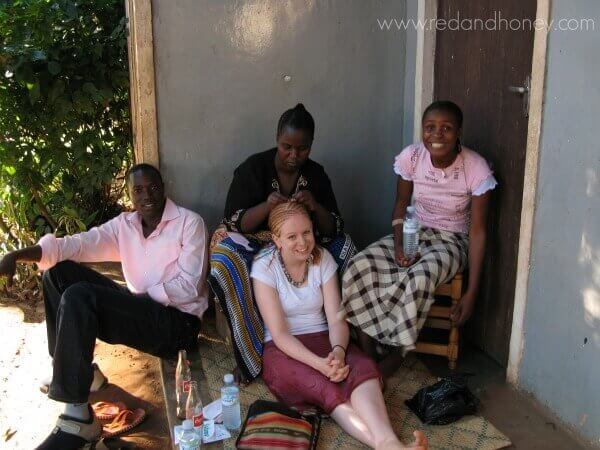
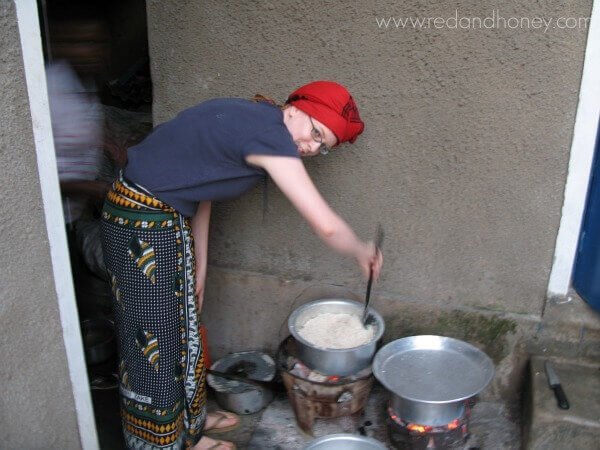
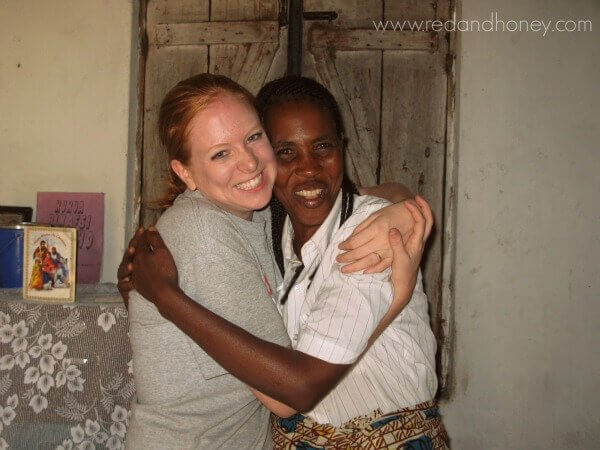

These people are our brothers and sisters in Christ. I looked into their faces, I loved them, I cared for them, and, yes, I was compelled to generously give. But today, the struggle remains in my daily life.
I can’t help it – maybe you can relate? I swing back and forth on this issue more than a grandfather clock at midnight, y’all. It’s one of the most divisive and heated debates ever among Christians: do we have too much stuff? Do we have too much wealth?
Is it OK to have excess when too many in our world die for lack of basic food and water and healthcare? Really, is it?
On one side people are saying “there’s nothing wrong with wanting nice things”, and on the other side people are biting their lip, asking “but what about the poor and hungry that we are supposed to serve?”
To be honest – I find myself forever in danger of justifying my own selfish ambitions, but hardly ever in danger of being “too generous”. I think that should serve as a warning.
I struggle with my “consumeristic” tendencies every single day. Greed is one of those insidious sins that winds its way into our hearts and minds in our culture, camouflaged until it’s practically unrecognizable.
I haven’t even come close to figuring this issue out. Right now I’m agonizing over my white bedroom walls.
Some will say “Oh, just go for it. Enjoy your creative expression and your beautiful space and spend the money without feeling guilty”.
And some will say “That $50 or $100 could buy a lot of rice and beans and ugali. It could pay for another AIDS retroviral treatment for beautiful Mama Augustina. It could buy a lot of clothes for children wearing literal rags.
It’s a mysterious balancing act that I’m still working on.
Today I want to hear from you. Here are the questions I leave you with…


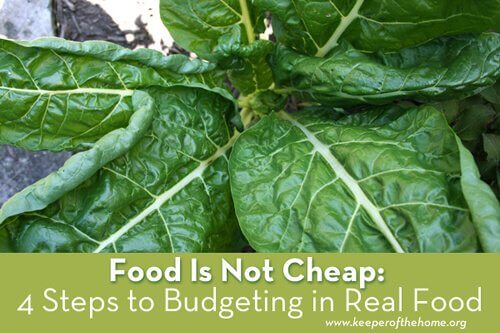

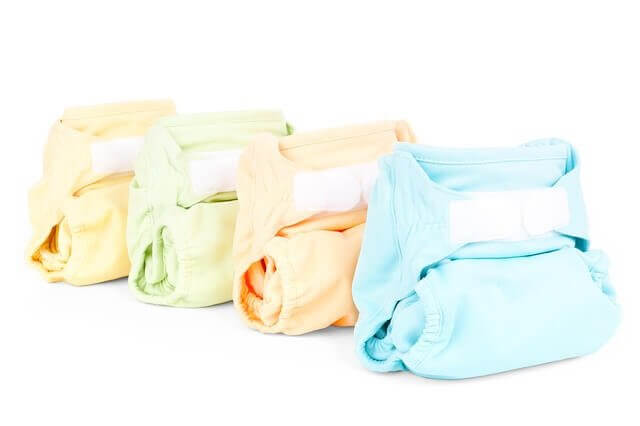
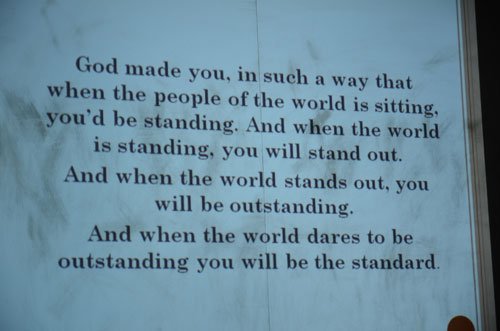
I feel your pain in writing this – this was tough girl, and very brave! We have gone back and forth the same as you, though have arrived at the conclusion (for now! :D) that wealth can also be a gift from God. IF used properly. But very few people, I think, have been blessed with tremendous godly wealth. We are so blessed, just living in Canada itself, with everything so accessible to us and there really isn’t much we go without. And we have seen the effects of God having a bigger shovel when we are generous and give. But yes, there’s still that struggle – generosity? Isn’t it all really not even our own anyway? Doesn’t it all belong to God anyway, and I dare to call myself generous? I think we each need to judge for ourselves what God would have us do with what he has given to us. And shame on us if we are holding more tightly to it than are willing to loose it to his purposes.
Wow. Great post. It is so hard to understand how blessed we already are until we see how others suffer throughout the world. I do not think that God wants any of us to suffer. I believe Jesus wants us to enjoy our lives, and live centered for him.
Where does money fall into all of this? I don’t think it is wrong to make good money. God blessed us each with our own abilities, and if it makes us monetarily wealthy, it is a gift he is bestowing on us to make something of, just like any gift he gives. If we continue to only “bless” ourselves with the money he has given us, then we are missing the point of why we have it.
He may be calling me to sell it all and live among the poor. He may be calling me to invest it to earn more money so that someday I can use it to further His kingdom in the way He chooses. As long as we are listening to the call on our own lives (in regards to money and everything else), we are in the will of God.
Well, I could voice my opinion but if we are being honest sisters, the Bible is so clear on this issue. Beware of materialism. We have been battling this thing for over a year. The truth is, outside of america, Christians live sacrificially. No self indulgence, materialism, or any such thing. Our culture LIES to us sisters.
While I don’t think it is a sin for a Christian to be rich, I do think that American Christians have bought in lock, stock and barrel on what It means to be a success and that means lots of things. Not all fall into that category but more rather than less.
I was watching a show last night and heard a person say that now it is cool to be a Christian. It made me cringe because we are supposed to be counter cultural.
Also, rich is relative. I am not rich according to US standards but I am according to Third World Standards.
According to the Word, we are to have life and abundant life. That is abundance in all things. Salvation means complete, whole, lacking nothing, nothing broken, nothing missing. Look at the Old Testament. King Solomon asked for wisdom. That wisdom brought him great wealth. Abraham was a wealthy man. I believe that Jesus was also not lacking. He would send Judas out to give to the poor. If they lived with barely anything, what did they give? If you have only enough to get by, how can you bless others? Money is not evil….it’s the LOVE of money that is evil! You see, it’s wrong when it becomes our god or our idol. When we put it before God, it is wrong. Our God is a God of abundance not lack! Amen!
I agree with the comments above. BUT (and I am certainly not saying this about these ladies) I feel like we hear that same line – that God blesses some with wealth, or whatever variation of that – and it is used as an excuse. So maybe we should rewrite it to look something like this: if we are actively involved in helping the orphans and widows in our community and worldwide, and we definitely give at least 10% to the church, and we are smack dab in the middle of God’s will for us…then yes, it’s ok to grab that latte on your way to the grocery store with 10 kids in tow. Christians often just stop after saying that God has given us wealth so wr can help
Oops. I meant to finish that by saying that Christians might be grateful for the wealth God has blessed them with, but it stops there, without them ever actually living out what the Bible says to do with that wealth. So while it may be ok for us to have it, please let’s not get too comfortable in that or ever use it as an excuse!
Therefore if you have any encouragement from being united with Christ, if any comfort from his love, if any common sharing in the Spirit, if any tenderness and compassion, then make my joy complete by being like-minded, having the same love, being one in spirit and of one mind. Do nothing out of selfish ambition or vain conceit. Rather, in humility value others above yourselves, not looking to your own interests but each of you to the interests of the others.
Philippians 2:1-4. By applying this to yourself it matters not your station in life. This covers all economic levels we could possibly be in.
Excellent post! Good Questions! I do believe that wealth and christianity are compatible. Its not a matter of how much you make, its a heart issue. Its about how we spend what we have. We have close friends that gross close to if not over 500,000 a year. They live in a modest home, are a one car family despite both having careers. They dress their children in used clothing, keep a 10,000 dollar buffer in their bank account, and literally give the rest away to missions all over the world as well as here at home. Perfect examples of honoring God with what they have. Its not that they do not ever take vacations, or have some toys, but the overall picture is a family who seeks to honor God with what he has given them. I think the prob isnt how much you have so much as what you do with what you have. Our middle class is much more the prob here. Most people my age have a large home, two or more cars, closets shoved full of clothes, shoes, toys, etc…..tons of debt, and the majority of people still do not tithe. Its a heart issues
As for our responsibility to the poor. Its addressed over 300 times in the Bible. I doubt God takes it lightly. However there are many ways to do that here at home as well as overseas. I would love to be wealthy and have enough money to give it away or fund a mission project overseas, help with human sex trafficking, etc. I am not wealthy however and I prob never will be. Some months Im not sure how our sadly modest bills will even get paid, or how food will go on the table. However there are ways we can take care of the poor here at home without money. Getting involved with your local public schools breakfast program, reading to inner city kids at the library, joining a cuddling service at a hospital that has a nicu program for premie babies who have been left at the hospital, or whos parents cannot afford to be off work to hold all the time. Getting involved with Youth Unlimiteds programs outreach centres or food service trucks. Baking cookies for youth outreach programs in our town/cities. Tithing at our local church’s whether we can put food on the table that week or not. Taking in one of the 30,000 kids that are waiting in our foster care system to be adopted, baking muffins, or sending a meal to a sick/grieving person in our churches or neighbourhoods. The list goes on. I just feel this is so much more a heart issue that a money one. No matter where we are on the money scale we all have a biblical responsibility to the poor. I highly doubt when we stand before God, He is going to care where we fell on that scale. Its about using what we have money wise for him, and if we have no money at all, its about our time then.
I agree with the ladies above. Wealth is a blessing and God instructs us to use what he has given well so as to multiply it and bring him glory! We praise Him for what we have whether it is little or much. How much we give vs how much we keep has more to do with God’s calling in each individual life. Personally, we live minimally and try to give generously but at the same time we are saving over 30% of our income because (like Dave Ramsey taught us) if we live like no one else now, we can GIVE like no one else later (even while we are comfortably retired!). We also see it as a way to leave a legacy for our kids to obey God’s instruction on handling money and be self sufficient while giving. No matter where any of us are financially, it is our attitude about money and our willingness to obey God’s individual calling that determines if we are handling it right. It always comes back to the heart.
Beth, this is an EXCELLENT post! My thoughts on being wealthy:
1. Money is not evil, the love of it is.
2. If I don’t love money, I can have as much or as little as I want of it and be content (remember, contentment is a choice. Philip. 4:11).
3. With contentment, money simply becomes another tool for me to use to care for my family and show God’s love to the world (don’t get those priorities out of order. I Tim. 5:8).
4. Once my family is taken care of, the generosity modeled by Christ is my example of what to do (with money…or everything else, for that matter!).
5. Seems like contentment is the hang-up for most of us, and I believe it is okay to land in different places on what that means for your family (provided 1-4 above are taken care of). I personally know a few millionaires and two of them are truly sacrificial givers…and yet some would call all of them evil because they are still millionaires. Baloney!
Okay, there’s my mini blog post of a response. ;0)
Love this response – a friend and I were talking about this issue today because I have been wrestling it over with God lately. These points might help me make some headway 🙂
I truly believe that God gives as He sees fit. Yes, did not our Lord also say that there will always be poor? I believe that we should give as we can because he said to give our extra tunic, not the shirt off of our backs! I know those who give to the point where they themselves end up in financial need. I do NOT think this is what God intended. I also know those who are strictly the 1:10 folks… they will never give more than 1/10 of whatever they have (and was not Jesus’ implication 50%?) I believe that one should give of their time, talent and treasure. Surely everyone has something of one of these that they can donate to those less fortunate than they are.
This has also been on my heart a lot lately! The verse prior to 1 John 3:17, says, “… we ought to lay down our life for our brother.” (3:16b) I would say that you and I are very similar in thoughts and convictions on the matter. I agree with Beks very last statement, “it comes down to the heart” but if your heart does not lie convicted of the verses you mentioned above, then your heart can be easily led astray. Gina, you are missing a lot of scripture by saying Christianity is about living abundantly. Christ himself had no where to lie his head and when they had to pay their temple tax he sent a disciple to find coins in a fish’s belly… no abundance there, but needs completely met? Yes. I really appreciated you saying “To be honest – I find myself forever in danger of justifying my own selfish ambitions, but hardly ever in danger of being “too generous”. I think that should serve as a warning.” This is so me too!! I try to encourage others to live with less to be able to give more and to even count everything they gain on earth a loss, unless gained for the sake of Christ. We live pretty darned comfortable right now, though we don’t have many American standard things. Praise Gd for his gifts towards us and let’s pray we are all convicted that less is more and to apply scripture to every part of our lives!
This was so good to read this morning. I found my own thoughts mirrored in this post…thoughts that have fought in my own heart for YEARS…books like Crazy Love and Radical started the war inside, and it continues on. For me, it hinges on total obedience, and how much I am seeking God. When I am focusing on myself rather than on His will, I hold more tightly, I focus more on my physical space, etc. I hesitate to even say….”Well, it’s ok to have this, if….” because I know that could open the door for a rule, and I think the “rule” of stewardship is very personal. Yes, there were wealthy people in the Bible…mostly in the Old Testament. In the New Testament, there were “wealthy” people who supported the church work. The people who were closest to Jesus, though, seemed to be wholly focused on spiritual wealth vs. material. Thank you for making me think this morning!
A friend pointed out that while Jesus called many to sell all their possessions and follow him he also relied on the generosity of people who did own homes, had stores of food on hand, etc. So there must be a balance of people who he calls to voluntary poverty for his service and those he calls to mindful consuming and giving.
I think there’s something in the idea that it might be okay for us to have nice things as long as we are willing to give it up for someone else. Will we donate from our own closets when a coworkers house burns down? Will we raid our own pantries to help out that family who’s hit a rough patch? Will we find a way to help that newly married couple out with that car repair? O
ne of the big lessons that we need to take away from the lesson of Jesus and the man he asks to sell everything is that if we have a wealth of material possessions we need to be able to give them away at a moments notice when Jesus comes to the door – no matter his shape. The man in the lesson wasn’t able to distance his self from his things.
p.s. One thing I love that my church encourages is the sharing of Time, Talents and Treasure – I appreciate the idea that there are ways to give and be generous even if you struggle with writing a check every week.
This would pretty much be my response. I’d also add:
Would / could you, in a heartbeat, be willing to give that wealth away in it’s entirety to live amongst the poor either in the inner city or a 3rd word country to spread the gospel if He called you to do so? Would you be willing to open your doors to people like those in the mission field in need of a place to stay as they travel?
My husband and I go through the same turmoil on this issue regularly. We make about 80K/year, have no debt but a mortgage on a 1600 sq ft house in a small town, give over 20% of our income (church, missions, compassion, etc.), save 10% in our retirement account, and make ourselves a $200 car payment each month toward our future vehicle (mine currently has 190K on it). It’s so easy to justify ourselves through a north american definition of “need” and “generosity” but we both still feel like we are a far cry from what Christ is calling us to.
Right now, where we’re at is- we keep 6 months of income in the bank, a 1000 emergency fund, contribute to our retirement as aforementioned, pay our bills and aim to give the rest away. It’s the “paying the bills” part that gets tricky. What do we really need? We don’t have cable, we don’t have smart phones, but we still have high speed internet, use our air conditioning, go on vacation, etc. We just keep praying that God would pry our fingers off the things we think we need so that we would spend our money in ways that matter eternally, whether that’s a vacation that helps us connect to our family more deeply for God’s glory or choosing to forego that vacation to help give missionary friends the boost they need to fly to a country where 98% of the population has never heard the Good News.
For an EXCELLENT treatise on this subject, I highly recommend David Chilton’s Productive Christians in an Age of Guilt Manipulators. You won’t be confused about this issue once you’ve read this book. It will arm you with truth – and the truth will set your thinking FREE. : )
You can download the book FREE here: http://freebooks.commentary.net/freebooks/docs/21b6_47e.htm
I’ve read the first 20 pages and so far it seems to be addressing wealth redistribution on a governmental level. Does the book address a biblical view of money on a personal/ individual level? It seems to me they are two completely different topics, but perhaps I just need to keep reading 🙂
We live very frugally in an intentional way, and our household rule is to never turn away those who seek our aid. We plan to make larger purchases in the future (a house, for example) and when we do we hope to do so in a sustainable and Christian-minded way. We recently acquired our first car, and I feel a certain amount of guilt over it – especially when I consider that we have lived happily as a family of four for many years without a vehicle. I think that for us the key has been careful, prayerful consideration of decisions. We try not to become legalistic over it – a bag of doritos isn’t the end of the world! But, when it comes to purchasing clothing or food or furniture – yes.
Thank you for writing this post. It’s not an easy subject to tackle as our culture is so consumed by pursing “the American dream” (and sadly, even out churches and my own heart has been indoctrinated to believe we need all these things). I appreciate your transparency about your own struggles with it and your boldness to share. Thank you!
Thank you for this post! I grew up in a family that began wealthy and lost everything. For weeks at a time we were homeless and dependent upon the generosity of family or friends housing us and our church feeding us. I saw how much closer it brought us to God, but it also created issues that I am still overcoming—like the fear of not having enough. At 31 with a family of 6 to feed and clothe, I struggle to have faith to give more than I think I can and trust that God will “poor [us] out a blessing that there will not be room enough to receive it.” For me, the question is about faith. I have to take the leap despite my childhood anxieties. When my children’s friends come over and want food, even though food prices keep rising and I’m barely keeping within budget, I take a deep breath and open the pantry and show them the choices. I am no where close to saving or donating as much as I want to, but I am taking baby steps to get there. Maybe that’s an answer to this question? We keep our focus on becoming ever more Christlike and He helps us improve a step at a time by inspiring us how to live.
*pour
I’ve worked full time in missions and poverty relief for the past decade, specifically in Uganda, so I have wrestled with this question long and hard for as long as I can recall. One thing I have discovered over the years is that poverty is often a systemic problem, especially in countries or communities which are debilitated by it. Systems are unfair, opportunities are not available and people are taken advantage of. For example, women in Bangladesh are often paid mere pennies an hour to sew the clothes we purchase here in the States. They work in conditions that are deplorable. Much of the cheap chocolate we consume in America is harvested by child laborers…or even slaves. As American Christians we often think spending less or buying cheap for ourselves frees up more money to be generous toward others. I used to feel this way and shop this way. Yet after learning a lot along the way I would now argue that we are inadvertently supporting a system that oppresses millions of people around the world. We are buying a certain way so we can help them, but our buying is hurting them. But when we spend a little bit more to buy the fair trade coffee beans or chocolate, or purchase clothes and household items from companies which we know did not abuse their employers we are helping the poor tremendously. I have often wondered what would happen if the church began making wiser purchases. What kind of oppressive systems could we begin to break? Naturally, most of us would have to buy less if we began buying better, which would also help a good bit with our consumerism and piles of goods. Our family is nowhere near wealthy, but we’ve found that with a lot of smart planning, recycling and prioritizing we’ve been able to shop more in line with our beliefs. Not perfectly, but better. We also founded a fair trade company, so I’m partial. But I’ve honestly seen the real life impact on peoples lives with my own eyes. And so when I buy that $3 chocolate bar I no longer feel guilty. Though I don’t buy chocolate as often either! So it’s also been good for my waistline. 🙂
I had never thought of that. That is a wonderful point. I have been working to start buying more if our foods at farmers markets and such, because it helps locally, but hasn’t considered an international impact at all. Definitely going to be thinking about that.
This is so true. We try to shop intentionally and think about how our purchase will affect others, especially the people making it. My husband wrote a blog post with a checklist of the process we go through when we buy something. (http://www.pheaney.com/p/wwjb.html)
This is a great perspective. Thanks for sharing.
I am glad that you wrote about this! This issue is always on my heart. We currently sponsor 3 children with World Vision and Compassion International. Knowing that it is ~$35.00 a month to help them go to school, be healthy, and support them and sometimes their families, I have a hard time spending money on unnecessary things without feeling like I could feed and care for a child. You start seeing spending in terms of children to sponsor.
I think we have to closely examine our hearts. Thank you for being transparent and honest. If we catch ourselves justifying our “need” for things, I feel we can tell our heart has grown too attached to our stuff rather than to Christ.
I have always wanted to travel and visit France since I was young, but I can’t fathom spending a few thousand dollars on a trip there. Many of my friends say it is not wrong and that I am too hard on myself or that I should not feel guilty, etc. which can be true for some. But I feel such a peace knowing that Heaven will be infinitely greater than France and I am okay with giving that money away to someone to help keep them alive, rather than for my temporary enjoyment. My husband and I pray that our money and resources can be used for Kingdom purposes rather than things here that will fade away.
We are not the best at living this way, but we do our best to give and love when asked of us.
I think you have to take the whole Bible into account when you decide on issues like these. Those were 3 statements Jesus made and 1 statement the Apostle John made under the guidance of the Holy Spirit, and they are important to note. But if you look at the whole Bible you also find that God said He wants to bless His people. I know that not all this blessing is material wealth. It also includes family blessings and many other blessings. Abraham was a wealthy man in his day. But God also says that He blesses us so that we may bless others.
The reason Americans are better off than the people in many other countries is the godly attitudes and the freedom of our nation early on. We are now at a stage in our overall national attitude that we could very easily lose everything to God’s judgment for turning our backs on God’s ways.
But one thing we see about Americans is that they are still generous givers. It is not wrong to have wealth or to enjoy God’s blessings. But God asks us to be generous and to be a blessing to others. Our focus should not be on squeezing out any pleasure from our lifestyle, but it should be on how we can give back to God by giving to others.
I have been thinking about this a tonne lately. You see, money is a god in my life….because I don’t have any. My husband has been struggling to find full time employment leaving us running a deficit every month. Meanwhile, we go to church in Vancouver where the average house is worth 2 million dollars. The passage in Acts 2 echos: “And all who believed were together and had all things in common. 45 And they were selling their possessions and belongings and distributing the proceeds to all, as any had need. 46 And day by day, attending the temple together and breaking bread in their homes, they received their food with glad and generous hearts, 47 praising God and having favor with all the people. And the Lord added to their number day by day those who were being saved.”
As my husband and I discuss these things the questions arises, “is it how much you give or is it how much you give in proportion to what you have or is it how much you have in relation to others?” Because obviously, when you are on the needing end, you have to question, “how would I feel if I actually had money?” I think one of the greatest problems is that here in North America we are so far removed from people in need so it’s easy to write our monthly cheque to World Vision and think we’ve done enough, when not only are people around the world still going hungry but there are people suffering silently among us. At this dark time in our lives, I have to question the essence of Christian community when my “brothers and sisters” in Christ can be so consumed in their own endeavors that they do not notice hurting people.
At church this Sunday they talked about greed and wealth. Right now my family is comfortable meaning we can buy something new for the house or splurge at the grocery store. We choose to donate to our church as we trust them to filter our money to the more needed channels. My thoughts are should we be comfortable? If we are comfortable shouldn’t we give more and learn to live on less? We are expecting our second child and we have decided to live off one paycheck soon, being comfortable will no longer exist for us at that point but why not start that now and give all we can while we can. No matter what our budget is we will always give because no matter how poor we are there is someone struggling out there with much less. In terms of true wealth we will always be rich beyond our dreams because we have God in our hearts and love in our home.
Great piece here. I struggle with this a lot. Thinking of your experience in Tanzania sheds light on it for me. If your host family was standing beside you in IKEA, say, the choice about alarm clocks and matching picture frames is easy, right? But the distance from them and from that experience makes the decision a hazier one. I’ve experienced something very similar, and it is hard to bring to mind the reality of poverty when I am immersed in a daily life that encourages to consume, prettify, and upgrade at every turn! 🙂 Shane Claibourne wrote about the verse “the poor you will always have with you” not meaning “you will never alleviate poverty,” but that as Christians, you will always be in close relationship with people on the margins of society–the poor with be *with* you. I think having the poor with me, whether in mind (remembering poor families who have shown me great hospitality and still have great need) or in the literal sense (giving a refugee friend a ride to Kmart, and they are right there) would really change a lot of my purchases, if I let it.
I was humbled in my ideas about money during the few years I lived in an intentional Christian community where “covenant members” combined all their incomes to a “common purse” and then received back their rent money, the same amount of food budget that people on food stamps receive, reimbursement for gas/public transit fare, and $50/month for extra needs (clothing, entertainment, etc.) and another amount (don’t remember the figure) as “give away” money. So, my housemate, a computer programmer, who made over $100,000/year lived very, very simply. The community gave away a TON of money, and they were rich–in relationships and spirit, because of the life they shared, not because of an abundance of possessions. Seeing people actually live out giving so severely made it harder for me to deny this as a realistic model for Christian living. Their glasses were out-of-style and their homes were very simple, but their life was good.
I think the question of whether Christians can be wealthy is often confusing because it’s not clear whether *having* a lot of money/income or living a wealthy *lifestyle* is what we’re talking about. I do believe that wealth is mean to be redistributed, and we can do that sometimes through buying–whether that be music lessons, organic produce, fair-trade housewares, etc. We share our money when we purchase, in a sense, but I think it’s important to ask who we are sharing it with. Wal-Mart’s milionaire heirs, the neighbor lady, peasants via Ten Thousand Villages…?
This is a fantastic response – thank-you!!! YES, the imagery of having my Tanzanian friends standing beside me in IKEA (or even just coming to visit me in Canada at all!!) has crossed my mind many times. What a stark picture that is, right? How on earth could I EVER justify the vast majority of my purchases if that were the case? I don’t think that Jesus really meant “give to the poor, but only if they get all up in your face and obstruct your window-shopping view in the most literal sense possible”… right?
I also love your story about the intentional community. “Their glasses were out-of-style and their homes were very simple, but their life was good” – this is incredibly insightful… just wow, really. I am going to have to chew on this all night.
Thanks so much for sharing your thoughts, Hope.
I think the key here is stewardship: how we use the resources God has blessed us and charged us with. This became absolutely clear to me as I read “Scripture, Culture, and Agriculture: An Agrarian Reading of the Bible” by Ellen F. Davis. The way we use our resources should glorify God, cultivate God’s creation, and bless God’s people. I realize this is a consumer-based outlook, but I do try to make sure that I use my wealth as consciously as possible. I try to support sustainable and socially-conscious companies and practices. I practice stewardship in my own home–I believe that even something as small as saving one’s kitchen scraps for homemade broth can be a God-honoring practice. Wealth used mindfully should create more wealth for the community, just as proper (and God-ordained) agricultural practices should create more healthy soil, not less.
Oh my gosh, such an excellent post, and it rings SO TRUE for me (and I’m sure many others). This is a topic I/my family really needs to think and pray about. Thank you for the post.
I’ve found it’s all a balance that I seek Jesus on. If I withhold too much from myself and family I can tend towards legalism and not enjoy God’s grace. But if I spend too much I can put us in a dangerous financial situation and rob myself of the opportunity and joy to give. All a balance I need the Holy Spirit on to guide me day by day and with each decision.
I also think we should bless the wealthy and not be resentful or bitter and trust that God is working in their situations and give them plenty of opportunities to give 🙂
Oh. Wow! I could have easily written this!!! I struggle with this, too- BIG TIME!!! Pinterest certainly is no help to me when I see how lovely everything is decorated. I just dream. And then I see the need to help others and UGH.
I’m learning from all the comments here, too. Greatly appreciate knowing I am not alone in this struggle!
As a Christian also, I find myself thinking of those very same questions. I do believe it is a balance. Giving should go to the poor, orphans, and widows. There is a fine line between Praying for prosperity for yourself and the things you want, and Praying and asking God to supply all of our needs and praying for those that need help, and how we can help those who are in need. What a great question to ask.
I know a childless couple who have a nice, large home. I know there were some Christians who thought they were extravagant, but I’m telling you, they may as well have had revolving doors on that house!! They hosted and sheltered so. many. events and people over the years. Yes, their home was larger than they “needed”, but their generosity is extravagant, as well.
In contrast, I once saw one of those wedding shows where a young woman’s mother was poo-pooing the idea of her daughter having a nice wedding because the money could be better spent helping the poor. While I can appreciate her thought, she came across as so frumpy, boring, severe, joyless, and judgmental. I thought “Is THIS a picture of Christ? Is this how we want the world to view us? To view him?” No, I don’t think so.
Spending money frivolously may not be Christ-like, but I wholeheartedly believe that agonizing over every single spending decision, and living in guilt, is not the way to live, either. I strongly believe that there is no universal right answer, as much as many would like there to be. I think that this is one of the many, many, many areas where Christians must rely on their *relationship* with Christ and the prompting of the Holy Spirit instead of seeking answers in religion. That is why Jesus told the young man to sell everything he had; because he wasn’t looking for a relationship with Christ, he was looking for a to-do list that would accomplish his salvation. Let us be so very careful not to fall into that trap. I would rather live in grace than religion any day of the week. To live in peace and joy, gratefully accepting and enjoying all the gifts He gives and yet holding them loosely, ready to give them away.
This is spot on, Jenn. I don’t think it is wrong to be wealthy, but we are accountable with what we do with it. At the end of the day ,it is all God’s and we are only stewards.
Very well said Jenn.
The Bible has lots to say about money besides the few verses mentioned in this post. While the questions posed are helpful to ask, there is much more to consider than buying a piece of decor or giving that money away. I highly recommend the Biblically based, financial Bible study from Crown Ministries. http://www.crown.org. All of Dave Ramsey’s advice is solid, but it’s meant to reach the masses. Founded by Larry Burkett, Crown delves into Scripture and is highly practical. If your church doesn’t offer the study, look on the website to find a local church that does.
I was really hoping you’d have THE ANSWER here, haha! I think that God likes us to wrestle with this because it helps refine our hearts. I’m currently of the philosophy that if I have an opportunity to give, then give — err on the side of generosity. But I also try not to feel guilty when I don’t. As a comment above said too, I really like Crown Financial ministries for Biblical teaching on this – it really transformed the way our family approaches handling God’s money
Love the post/thoughts. I haven’t read all the comments, and perhaps someone has already touched on this- buuuuut, I think a BIG thing is for us not to judge one another. I think that may be a really hard thing. I think not judging what another Christian is doing with what God gives them (or what you THINK they are doing) is just as important as being obedient to what the Holy Spirit is asking of you. Yes, I think biblically their are guidelines. But, ultimately we need to listen to the Holy Spirit’s voice in our own lives. I’ve been married for going on 12 years, and have been both very very “poor”- literally not having money for groceries (and not even realizing their was government aid) and now, making in the upper middle class. We have LOTS of school debt. My husband works 60-80 hrs a week, while I’m at home with the 3 kids. I feel a certain amount of judgment bc some people think they know what we make. However, this job is short lived in order to pay off debt. In a couple years we will go back to working a more “do-able” 40 hr work week for the good of our family. With that, it is sssoooo cool to be able to give now that we have extra. What a blessing!!! Still, just be careful not to judge others-
This issue has been burdening my heart for several years and has been the subject of much of my journaling during that time. I grew up in a very frugal household, and I think the lesson from that upbringing that’s having the greatest effect on my life right now is to beware the upgrade. It took having my own job and source of income (money to spend separate from my family’s finances) to show me how seductive spending money can be. I feel like two people sometimes: one who cares deeply about God’s work and creation and one who just wants more clothing, or shoes, or furniture. I find in my own life that the feeling of guilt is just missing when the item I’m buying is actually needed–like, it doesn’t exist in my house yet. A set of shelves for the office. Or a bed for my child. I’m learning to listen when my body registers guilt for purchases that replicate or upgrade what I already have. My parents still live in the 1000 sq foot house I was born into. They just never upgraded. I made a different choice; I live in a much larger house. But I hope to take their lessons about frugality to heart as my family grows and we make financial decisions with what we’ve been given.
Pure socialism. King Solomon was rich beyond rich. Wealth is a blessing from god. Poverty is a curse. No ones owes a penny of their wealth to others. Educate others how to earn their own money. Buy whatever you need or desire. If you earned your money it’s yours and no one has a right to utter one word against ANYTHING you spend it on. Coveting others self created wealth is breaking the tenth commandment. If you teach others to surrender self earnings you are sinning. Buy anything you desire. It’s your money baby. And if you earned it, YOU DESERVE IT. Poor nations are under demonic curses. If God wants them fixed he has the power to do so.
Jesus said that it’s “easier for a camel to fit through the eye of a needle than a wealthy person to enter the kingdom of heaven”. That’s all folks!
Money or wealth, like all things can be a blessing or a curse. Nuclear energy can be good, but nuclear weapons can be evil. Likewise wealth can be used as a blessing or it can cause evil in the world. Coveting others wealth is wrong. Spending money for your own enjoyment can also be good. Just think of the waitress who may need her job and the money you tip her after you enjoy an expensive meal, and the relaxation and thankfulness you feel afterward.
If you gave all your wealth away and lived in poverty, would the world or you be any better off? Money in and of itself should not be thought of being wrong or good, it is what is done with it and our attitudes about it that matter.
Jesus made himself poor in order to make others rich the kenosis. anybody in Christ will be drawn toward that and anything short of that is compromised disobedience including being rich and considering yourself rich in good works. the old testament believers were not in Christ so their just men not made perfect state is irrelavent. rich Christians are selfish and selfishness is a sin.
Amazing! Such wonderful comments! I have to say I’ve not seen such a positive and forward moving stream of responses to an online post ever. (Every comments board seems to have at least one bad seed, but if you can look past the one, there’s beauty throughout!)
I really appreciate the comment about how spending a little more on fair-trade products can effectively convert some of the spending part of your budget into giving. I had never thought of that! I appreciate the comment about Philippians 2:1-4, emphasizing doing all things out of humility. I completely agree with the “mini blog post” that emphasized the issue of contentment. I was grateful that Krista was willing to share about the financial struggle in her life and point out the false assumption that everyone in America has even basic necessities (praying for you, sister!). Indeed Christian community really needs to serve those closest first, at least concerning food and clothing (1 Timothy 6:8)…although that’s really only possible if we are willing to open up our homes and lives like we see in Acts 2. I join Christ in praying that it happens!
Part 2
And, lastly, I’m glad the comment was made about the potential of falling into the trap of agonizing over every financial decision. That’s probably what I needed to hear the most. After all, we serve the King of Kings who can instantaneously replicate fish and bread. It’s his wealth, so worrying about getting too much wine for a wedding simply isn’t right (instead of rebuking wedding extravagance, didn’t Jesus end up adding to it!). But that’s what it really comes down to on that extreme: worry. We can worry that we won’t have enough, but we can also worry that we have too much. In the same way, we can boast about all of our riches, or we can even boast about how little riches we have. As many have said here already, it really is about the heart.
Neither being able to purchase, nor purchasing itself is the issue. There is a lot of agreement surrounding that. And there also seems to be a lot of agreement on how the love of money or of purchasing or of possessions is a problem. Everyone seems to agree that we should be content. But it seems to me that most tend to stop short there. Don’t get me wrong – I think you can get a long way with that teaching, but at least for me it’s a bit too abstract. If I come to a place in my heart that I know am not idolizing money, does that mean I can go ahead and buy this big screen TV? Well, the answer is still maybe. We have to take one more step deeper still.